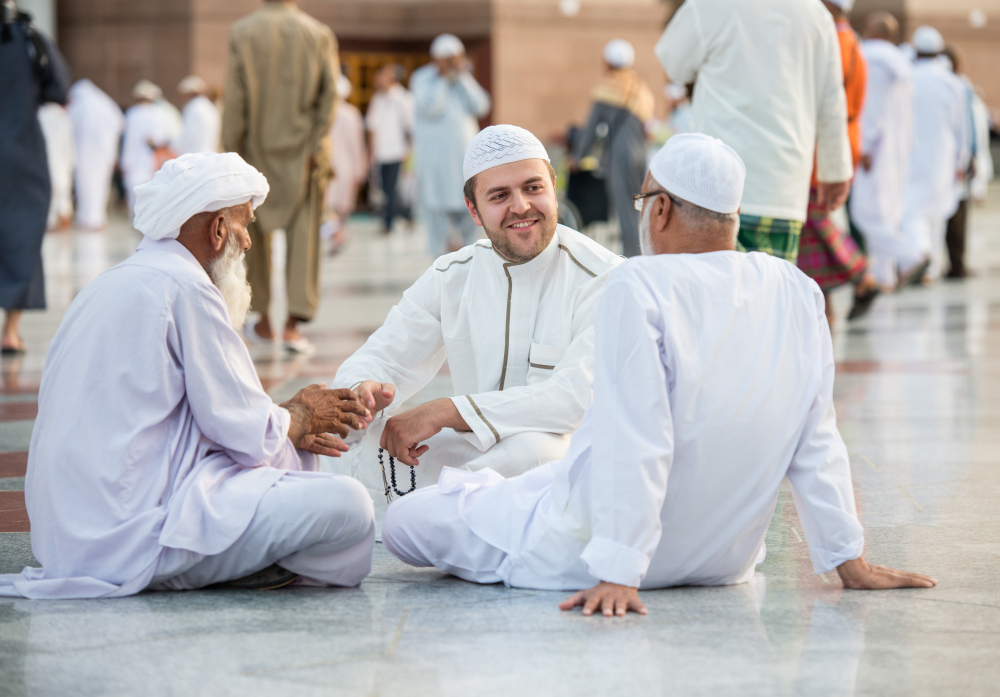Embarking on the spiritual journey of Hajj or Umrah can be physically demanding, especially given the harsh climate conditions, strenuous activities involved, and the large crowds. This comprehensive guide aims to help pilgrims manage their health effectively during their pilgrimage.
Part 1: Common Health Risks and Illnesses
1.1 Heat-Related Illnesses
Due to the extreme desert heat in Saudi Arabia, with temperatures that can soar above 45°C (113°F), heat-related illnesses such as heat exhaustion and heatstroke are common. Symptoms can include dizziness, nausea, headaches, and even severe dehydration. To mitigate these risks:
- Stay Hydrated: Drink ample water to prevent dehydration.
- Use Sun Protection: Wear light-colored, loose-fitting clothing, use sunscreen, and carry an umbrella for shade.
- Rest Frequently: Take regular breaks in shaded areas to recover from the heat.
1.2 Respiratory Infections
The dense crowds at Hajj and Umrah increase the risk of respiratory infections. Symptoms typically include coughing, sneezing, and fever. Preventative measures include:
- Personal Hygiene: Frequently wash your hands and use hand sanitizers.
- Wear Masks: Particularly in crowded conditions to prevent the spread of germs.
- Keep Medications Handy: Carry and use personal medications for flu-like symptoms as needed.
1.3 Gastrointestinal Issues
Changes in diet and water sources can lead to constipation and diarrhea. To manage gastrointestinal health:
- Food Safety: Eat freshly cooked foods, avoid street vendors, and ensure all dairy products are pasteurized.
- Stay Hydrated: Drink enough water to aid digestion and avoid constipation.
- Hygiene: Always wash your hands before eating or preparing food.
1.4 Skin Conditions
The dry, hot climate can exacerbate skin conditions such as heat rash or dry skin. Manage these conditions by:
- Skin Care: Use moisturizers for dry skin, and calamine lotion for heat rash.
- Clothing: Wear breathable fabrics to minimize skin irritation.
Part 2: Guidelines for Pilgrims with Chronic Illnesses
2.1 Managing Diabetes
For pilgrims managing diabetes, maintaining blood sugar levels is crucial, especially with the physical exertion involved. Tips include:
- Monitor Blood Sugar: Regularly check your levels throughout the day.
- Medication Management: Carry enough medication and supplies for the entire trip.
- Dietary Considerations: Maintain a balanced diet and avoid long periods without food.
2.2 Managing Hypertension
Pilgrims with high blood pressure should take precautions to manage their condition during the pilgrimage:
- Regular Monitoring: Keep track of your blood pressure regularly.
- Medication: Ensure you have an adequate supply of prescribed hypertension drugs.
- Avoid Salt: Limit intake of salty foods and consume a balanced diet.
2.3 Dealing with Arthritis
Arthritis can make the physical activities of Hajj particularly challenging. Managing arthritis involves:
- Physical Activity: Stay active to keep joints flexible, but also rest when needed.
- Pain Management: Carry and use anti-inflammatory medications or pain relievers as prescribed.
Part 3: Medical Facilities and Emergency Care in Saudi Arabia
Saudi Arabia provides extensive medical care for pilgrims:
- Access to Care: Numerous clinics and hospitals are available in Mecca and Medina, with services often free for pilgrims.
- Emergency Services: Familiarize yourself with locations of nearest medical facilities and how to access emergency services.
- Pharmacy Access: Pharmacies are widely available, offering both over-the-counter and prescription medications.
Part 4: Practical Tips for Health Management During the Pilgrimage
- Comprehensive Travel Insurance: Ensure you have health insurance that covers international travel and specific coverage for Hajj or Umrah.
- Medical Kit: Carry a basic medical kit containing essentials such as pain relievers, hydration salts, plasters, and antiseptic creams.
- Pre-Pilgrimage Medical Check-up: Consult with a healthcare provider for a full medical evaluation and any vaccinations needed before traveling.


